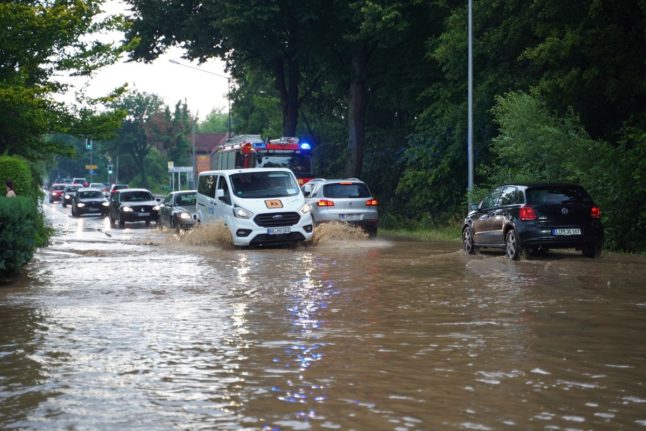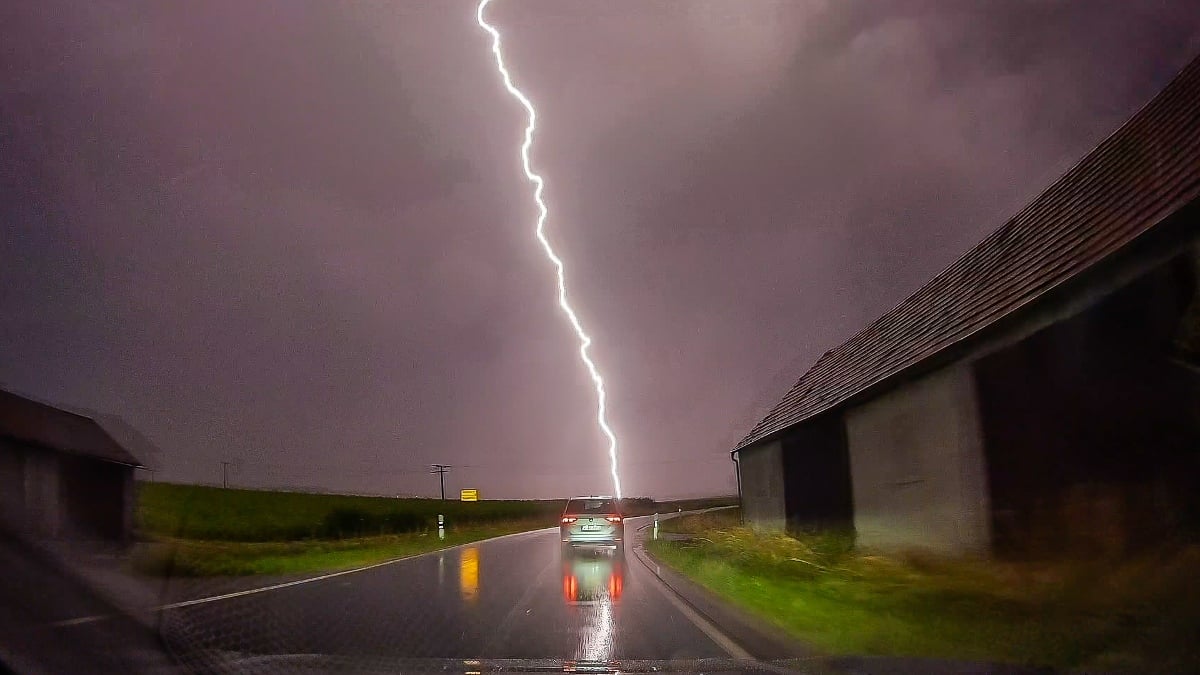After severe floods in southern Germany, conditions are ripe for mosquito populations to explode, according to an expert in the region.
Rainer Bretthauer, environmental and climate protection officer at the city of Radolfzell on Lake Constance, told DPA that the popular holiday location is already seeing signs of a mosquito plague.
Bretthauer said that the floods have offered perfect conditions for egg laying, resulting in masses of mosquito offspring.
People living around the area or visiting should be prepared, Bretthauer said. He suggested, for instance, wearing loose-fitting and long clothing.
Timing also plays a role when you’re outside. “They tend to bite during twilight hours when the temperature is higher than 18C,” he said.
Mosquitos ‘not a bad thing for wildlife’
While growing mosquito hoards may ruin peoples’ camping trips and planned lake vacations, for local wildlife, the mosquitos are a good thing, according to the Nature and Biodiversity Conservation Union (Nabu).
“All the insects that are now developing are a very important food source for many fish species and also for birds,” said Eberhard Klein from Nabu in Constance.
Around 50 species of mosquitoes are known in Germany. Some of them are counted among the so-called floodwater mosquitoes, which increasingly hatch after flooding.
According to experts, these mosquitos are particularly zealous blood hunters, as they have to reproduce quickly before the favourable conditions disappear again.
Floodwater mosquitoes like to lay their eggs on moist soil, often in riparian zones and floodplains. There they can survive in the soil for several years.
When these zones flood and the temperature is favourable, the eggs develop and hatch mosquitos. Therefore large-scale flooding, as seen recently in Southern Germany, can lead to mass hatching.
Mosquito borne illness is spreading to Europe as temperatures warm
Warming temperatures brought by human-caused climate change have allowed mosquito populations to extend further northward in Europe, including disease-carrying species that were previously limited to regions closer to the equator.
For example, the Asian tiger mosquito is not native to Europe but has already been observed in much of southern and central Europe, including Germany.
Tiger mosquitos are particularly concerning because they are known to spread diseases such as dengue fever, chikungunya and Zika virus. Mass outbreaks of these infections have been rising globally. Last year local Dengue outbreaks were recorded in France, Italy and Spain.
With reporting by DPA




 Please whitelist us to continue reading.
Please whitelist us to continue reading.
Member comments